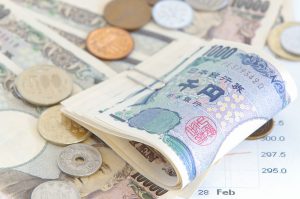Prime Minister Kishida Fumio has made fresh commitments to combat rising energy and food prices. At a press conference last month in New York, Kishida said Japan’s economy was at a critical point “as to whether it can enter a new economic phase.”
Last week Kishida instructed his Cabinet ministers to formulate economic measures for a supplementary budget to address rising prices, wage increases, investment in domestic semiconductor industries, and countermeasures against a worsening labor shortage and population decline.
Supply side shortages triggered by the COVID-19 pandemic are a distant memory. Japan is emerging from the pandemic recession with the help of a rebound in foreign tourism. Between June and August, the economy grew an annualized 6 percent compared to the previous quarter.
But full economic recovery is being hampered by record high inflation stemming from Russia’s ongoing invasion of Ukraine. The consumer price index has risen to 3.1 percent – a figure not seen since 1991. It has also exceeded the Bank of Japan’s 2 percent inflation target for 17 consecutive months.
Households are feeling the squeeze as the yen continues to slide against the U.S. dollar to a 53-year low, making imports more expensive. The cost of 4,500 food items are set to increase in October, which is more than double the number of food items that saw price hikes in September. Processed foods, confectionery goods, ice cream, and cell phone chargers have increased in price by 10 percent; the cost of toilet paper has gone up by 15 percent, while pet food and hotel rates have risen by 18 percent. The price of gas has also risen for 16 consecutive weeks, while household electricity rates went up by 42 percent in June.
The Kishida administration has stressed that wage increases are the key to overcoming inflation. The latest economic stimulus package aims to encourage companies to raise wages. Kishida proposed tax cuts to allay small and medium-sized businesses’ cash flow problems. Under the current system, businesses in the red are not eligible to receive tax deductions. For fiscal years in the red, deductions will be carried over to the following year and will be applied when companies return to surplus. Proposed tax cuts for small to medium-sized businesses will take the form of flexible deadlines for carryover deductions. The supplementary budget measures will also subsidize the cost of constructing new factories and large-scale capital investment for small and medium-sized businesses that meet certain wage increase requirements.
The government believes that companies in the red are yet to escape a “cold economy” mentality. The Council for New Capitalism Realization says its main priority is to transform the Japanese economy into one that is growth oriented over a period of three years, and where incomes and corporate profits grow in the face of rising prices.
The economic stimulus will also be geared toward helping companies and startups in emerging industries such as semiconductors to raise capital that will improve productivity, profits, and wage increases. In order to promote investment in the semiconductor sector, tax credits will be offered in proportion to the volume of company production and sales.
Japan is the world’s third largest economy, but its productivity levels have sunk to their lowest since 1970. Product mark-up rates, which are the ratio of selling price to cost, have remained flat for the last 20 years. Japan’s technological innovation, once seen as futuristic in the West, has stagnated.
For two decades Japan was stuck in a deflation trap. That produced a generation of budget-minded consumers sensitive to price increases. The BOJ has yet to officially declare deflation over, and it is reluctant to reverse negative interest rates.
The Ministry of Internal Affairs estimates that household subsidies for rising electricity and gas rates have helped push down the consumer price index. They say without these measures inflation would be above 4 percent.
However, some experts argue that the latest economic package is nothing more than “handouts to boost the approval rating” which “will not solve the real issue.” Economists warn that tax cuts are only effective in an environment where tax revenues are expected to increase and moderate inflation continues. An economic slowdown overseas could hinder domestic demand.
The government is set to unveil economic measures by the end of the month.































